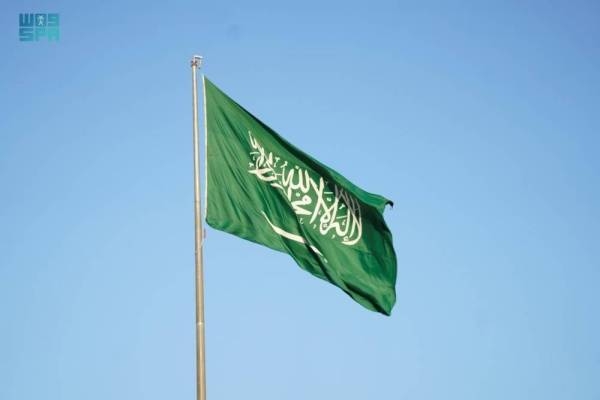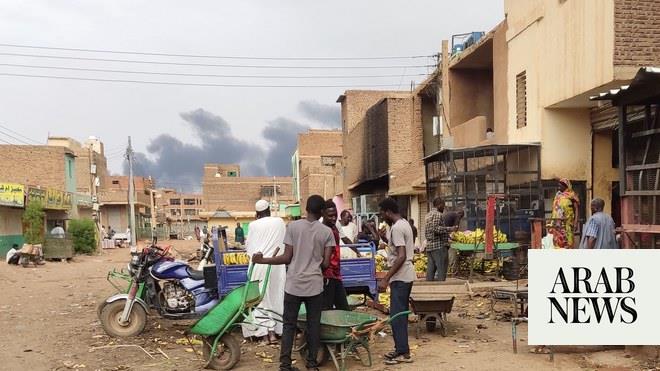
NEW YORK CITY: As concerns about water scarcity continue to grow worldwide, and in the Arab region in particular, Saudi officials on Thursday offered details of the steps they have been taking to address the problems.
They said the Kingdom is working to provide safe and affordable drinking water for all by developing ways to recycle and manage water resources in an integrated manner that reduces the environmental impact, and expressed confidence that it is on the right path to achieve the global goal of safe water for all.
Abdulaziz Al-Shaibani, the deputy minister for water affairs at the Saudi Ministry of Environment, Water and Agriculture, said his country leads the world in the unconventional supply of water through desalination, and is working hard to reduce the environmental impact of the processes that are used.
He was speaking at the first UN water conference in a generation, which was co-hosted this week in New York by the governments of Tajikistan and the Netherlands.
“I don’t know why (the conference) hadn’t happened up until now,” UN spokesman Farhan Haq told Arab News. “But we’re certainly glad that it is happening now.
“It takes time for member states to recognize the seriousness of some of the problems we face, and at least they’re doing this and it’s a positive development.”
Organizers hope the conference will prove to be a watershed moment in efforts to mobilize the UN system, member states and other stakeholders to take action, amid increasingly urgent warnings that international progress on water-related goals remains “alarmingly” off target, jeopardizing the entire sustainable development agenda.
The UN General Assembly set out its Sustainable Development Goals — 17 global targets designed to be a “blueprint to achieve a better and more sustainable future for all” — in 2015, with the aim of achieving them by 2030.
Al-Shaibani told the conference on Thursday that the water sector is a cornerstone of comprehensive economic prosperity and a strong nexus of the strategies for other economic sectors.
He said Saudi Vision 2030, the Kingdom’s ambitious development agenda, was launched as part of the country’s efforts to build a more sustainable economy in line with the UN’s sustainability goals, and to pave the way for a better future “by diversifying the economy, reducing the state’s dependence on oil and developing the public sector to be more dynamic, flexible and sustainable.”
The Kingdom’s limited natural freshwater resources and the ever-increasing demand for water, and the challenges these factors pose to sustainable economic development, prompted Riyadh in 2018 to adopt what is now known as the “National Water Strategy 2030.”
Al-Shaibani said it was devised around the principle of Integrated Water Resources Management, which aims to restructure the water sector to make it more sustainable and efficient.
He added that it seeks to achieve this through a number of ambitious initiatives and programs, the most important of which are: “Restructuring and developing Integrated Water Resources Management capabilities; developing and implementing the water law; integrated water planning; development of renewable and non-renewable groundwater resources and surface water; development of sustainable desalination capabilities; promotion of the contribution of the private sector and third sector; and adherence to environmental regulations and requirements as well as improvements of irrigation efficiency.”
Al-Shaibani said his country is striving to reduce carbon emissions from fossil fuels by 56 percent by 2024, which represents 26 percent of the Kingdom’s total commitment to the Paris Agreement, with the remaining reduction set to be achieved by 2030.
He added that advances in desalination have significantly increased the quality of drinking water while protecting nonrenewable groundwater resources.
The Kingdom is also, Al-Shaibani said, “establishing sustainable agricultural cities that promote local economies and rural communities; (and) supporting women through the development opportunities offered by non-traditional water sources such as the Sustainable Agriculture and Rural Development Program.”
In its efforts to achieve “universal and equitable access to safe and affordable drinking water for all,” Saudi Arabia has allocated more than $80 billion for “hundreds of projects” related to water infrastructure, to be implemented in the coming years, he told the gathering.
The Kingdom has also rationalized water use through laws and regulations and awareness campaigns, Al-Shaibani added.
He pointed out that in 2020, during its presidency of the G20, the Kingdom sought to include the issue of resilient and sustainable water management on the group’s action map for the first time. Riyadh also spearheaded the G20’s “Dialogue on Water,” which this year, under India’s presidency, will take place for the fourth time.
“The Kingdom seeks to ensure the continuity of the water topic discussion within the G20 in the coming years through cooperation and coordination with the partners in the group,” Al-Shaibani said.
Meanwhile, the Saudi Fund for Development has provided billions of dollars for the development of many water-infrastructure projects in developing countries, he added, including “building dams, well drilling, water-supply networks and other water-related projects.”
Al-Shaibani concluded by calling on all countries to cooperate, share their experiences and face the challenges together as they work to achieve the Sustainable Development Goals, “among the most important of which is the sixth goal: To have a secure future for all of us and for the future generations.”








